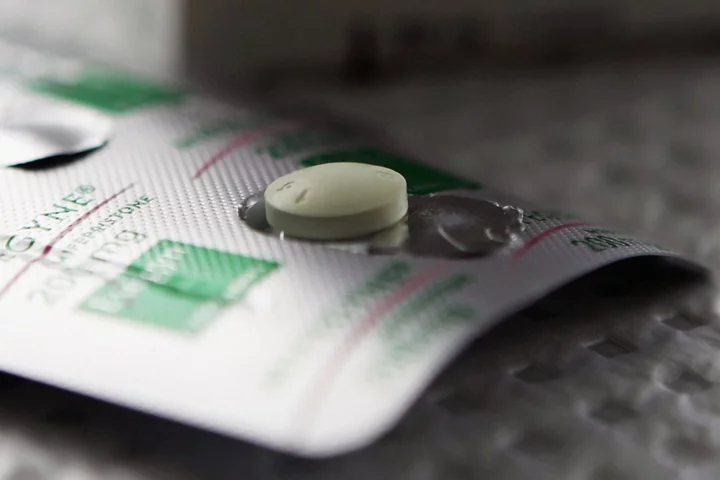
7 Morning Habits That Can Affect Your Entire Day
Set the right tone for the rest of the day by following these expert-approved tips.
2023-08-18 00:29

Thailand Warns of Religion-Tourism Scam as ‘Sacred’ Idol Appears
Thailand’s government warned its citizens and tourists to exercise prudence before worshiping any “sacred” idols, a move prompted
2023-08-17 18:59

What can you actually do to help prevent cancer, as 12% believe coffee is carcinogenic?
A new poll has found that 12% of people still believe that drinking coffee is carcinogenic. The new poll – conducted by the World Cancer Research Fund (WCRF), which surveyed 2,092 adults via YouGov – looked into the different ways people live, and whether it impacts their risk of cancer. The research found that 86% of people believed smoking increased the risk of cancer, while 60% said that being overweight could do the same. 47% thought being physically inactive can be detrimental, and 59% believed a poor diet can up the odds. Almost 59% said alcohol can increase a person’s risk and 55% said processed meat could be a risk factor. WCRF launched its poll to highlight its free eight-week interactive programme Activ8, to provide people with tips on making healthier food and drink choices, and finding different ways to be more active. Cancer Research UK wrote on their website that “not all cancers can be prevented, but there are things you can do to reduce your risk”. A person’s risk of cancer depends on many different things, for example, someone’s genes or age. But according to the charity, four in 10 UK cancer cases could be prevented. “The world around us doesn’t always make it easy to be healthy – but small changes to your daily routine can add up.“ The WCRF agreed and has said that around 40% of cancer cases could be prevented through factors including eating a healthy diet, keeping physically active, maintaining a healthy weight, not smoking and being safe in the sun. Dr Helen Croker, assistant director of research and policy at the WCRF, said: “These poll results show that many people aren’t aware of some of the steps they can take to help protect themselves from cancer. “For example, it’s interesting to see that 12% of Brits believe drinking coffee increases cancer risk, when in fact we have strong evidence that it reduces the risk of liver and womb cancers, and some evidence that drinking coffee could decrease the risk of other cancers, including mouth and skin. “For cancer prevention, there’s no reason for most people not to drink coffee, but for those who do, we recommend not adding sugar or other sweeteners, and drinking it in moderation.” Read More Charity boss speaks out over ‘traumatic’ encounter with royal aide Ukraine war’s heaviest fight rages in east - follow live A-Level results: How to be the emotional support your teen really needs These are the cheapest school uniforms on the high street – according to Which? Half of anxiety and depression cases in new and expectant mums are missed: 7 signs a new mum needs help
2023-08-17 17:16

Scientists find more evidence that a Mediterranean lifestyle helps you live longer
Scientists have found more evidence to suggest that leading a Mediterranean lifestyle could be key to living a longer and healthier life. People who follow a Med lifestyle – including making time for socialising; resting; physical activity and eating a diet rich in fruits, vegetables, and whole grains with low sugar and salt intake – are less likely to die prematurely or die from cancer. And those who get plenty of rest, exercise and make time to socialise with friends are less likely to die as a result of a heart attack or stroke. The new study examined data on 110,799 adults taking part in the UK Biobank study. People aged 45 to 70 from England, Wales and Scotland provided detailed information about their diet and lifestyle habits. The researchers, led by academics from La Universidad Autonoma de Madrid in Spain and Harvard TH Chan School of Public Health in the US, examined information ON Mediterranean food consumption; Mediterranean dietary habits – such as limiting salt and consuming healthy drinks – and lifestyle habits including taking regular naps, exercising, and spending time with friends. Higher total scores in these categories indicated a higher adherence to the Mediterranean lifestyle, the authors said. People involved in the study were tracked for nine years. Some 4,247 people died including 2,401 from cancer and 731 from cardiovascular disease, which includes heart attacks and strokes. Researchers found that people who followed a Mediterranean lifestyle were 29% less likely to die compared to their peers who did not follow this lifestyle. They were also 28% less likely to die from cancer, according to the study, which has been published in the journal Mayo Clinic Proceedings. And people who got plenty of rest and exercise, while also making time to socialise with friends, were also less likely to die from cardiovascular disease. “This study suggests that it’s possible for non-Mediterranean populations to adopt the Mediterranean diet using locally available products and to adopt the overall Mediterranean lifestyle within their own cultural contexts,” said lead author Mercedes Sotos Prieto, from La Universidad Autonoma de Madrid and Harvard Chan School. “We’re seeing the transferability of the lifestyle and its positive effects on health.” Read More Meghan’s got one. Gwynnie, too. But should YOU get a stress-busting wrist patch? How parents can support their children on GCSE and A-level results day A-Level results: How to be the emotional support your teen really needs 11 ways to work the terracotta trend A-Level results: How to be the emotional support your teen really needs These are the cheapest school uniforms on the high street – according to Which?
2023-08-17 16:27

A-Level results: How to be the emotional support your teen really needs
A-Level results day can be joyous for some – a time to celebrate their hard work and look forward to the next chapter of their life. For those who don’t get the grades they were expecting or hoping for, however opening the fateful envelope can spark a range of unpleasant emotions – shock, sadness, regret, and even shame. “Receiving your A-Level results, or any result at all, can be a tough moment in one’s journey, with the outcome possibly impacting one’s plans for the future,” says Dr Jeri Tikare, clinical psychologist at Kooth Digital Health. “Bearing this in mind, it’s easy to see how one can be left with tricky feelings if the results do not meet one’s expectations.” If your teen is unhappy with their results, they’re going to need your support in dealing with the disappointment and navigating their next steps. Psychology and education experts advise on how you can be there for your child on results day and beyond… Be empathetic On results day, it can be helpful to deal with the emotional fallout first, before discussing next steps, such as university or career options. “Make them aware that it is natural and possible to have a mixture of emotions – some of which could include sadness centred around the loss of their dreams of success, anxiety about what the future holds, anger at the self (‘I should have worked harder’), anger at others (‘They did not offer me enough help’), and other emotions,” says Tikare. Instead of brushing their reactions under the rug, try openly discussing and normalising whatever feelings arise. “We know that repressing our emotions can lead to heightened stress and anxiety,” says Tikare. “Recognising and acknowledging the emotions that the student is experiencing can serve as an initial step towards effectively addressing them.” Try to avoid cliches, says Catrin Owen, careers adviser for Working Wales: “Telling someone who’s worked incredibly hard for years towards getting these grades that ‘everything happens for a reason!’ can be like rubbing salt in a wound, and could cause them to become more upset with how their results have turned out.” Don’t make them feel worse On the other hand, recriminations aren’t likely to help. “Rather than focusing on any negativity about exam performance, chances to have revised harder or emphasising what they’ve missed out on, look at all the options and reassure them making a different plan isn’t the end of the world,” Owen adds. “It’s the start of their future, and there are so many opportunities for them to get excited about – whether that’s finding a different course or uni place, going into a different form of training like an apprenticeship, or deciding to enter the world of work now.” Offer guidance “Try to resist the urge to ‘save’ the young person,” Tikare says. “Let them know how proud you are of them, that it is not the end of the world and that despite the pain, things like this happen.” Instead of jumping in and telling your teen exactly what to do now, help them consider their next steps. “Now the initial emotions have passed, it’s time to make a plan,” says Owen. “Speaking to a professional can really help as they can give an objective and impartial view of the situation, and offer solutions you might not have considered yet. “Whether that’s speaking to your school about querying a grade, getting set up with clearing, or contacting a careers adviser – expert guidance can help take the weight off your shoulders as a parent and can reassure you that your child is getting the best help possible.” Signpost support If your teen is continuing to struggle in the weeks after results day, encourage them to seek further support if they need it. “It can be helpful for the student to reach out to trusted people around them, whether it’s a friend, family member, teacher, or counsellor,” says Tikare. “Having someone to talk to can provide emotional support and a listening ear. Remind them that they do not have to go through this alone.” And finally, Owen adds, “Focus on the positives – planning their future is exciting, even if there are curveballs.”
2023-08-17 14:59

These are the cheapest school uniforms on the high street – according to Which?
Sainsbury’s is the cheapest place to buy school uniforms while Next is the most expensive at more than double the price, according to research. Consumer group Which? analysed the costs of a selection of essential school uniform items for nine-year-olds at eight supermarkets and clothing retailers. The items included two each of pinafore dresses, polo shirts, skirts, sweatshirts, boys’ trousers and girls’ trousers. Household budgets have been battered by an unrelenting cost of living crisis, but our latest research shows some retailers will help your money go further than others Ele Clark, Which? retail editor The group said its research showed that at a time when household budgets are being “battered by an unrelenting cost-of-living crisis”, money will go further at some retailers than others. Which? said Tu Clothing at Sainsbury’s was the cheapest, costing a total of £47. At Next, the same selection cost £102, the group said, although it noted that due to some of the items being sold individually rather than in multipacks, it had to double the price of a single item to allow for comparison. Second-cheapest was Morrisons, costing £48.95, followed by George clothing at Asda, F&F Clothing at Tesco, Matalan, Marks & Spencer and John Lewis’s Anyday range, Which? said. The consumer group said Morrisons and Tesco prices were shared directly with Which? on July 26, while they checked the prices of items from the rest of the retailers on August 9. The group said its analysis focused only on the prices of items, rather than any differences in the quality, comfort or durability. Aldi and Lidl were also cited as selling cheap uniforms, but were not included in the Which? analysis as the group said the supermarkets tend to have “special buy” deals which sell out quickly and are generally not restocked. Ele Clark, Which? retail editor, said: “School uniforms don’t come cheap – especially if you have to buy them for more than one child. Household budgets have been battered by an unrelenting cost-of-living crisis, but our latest research shows some retailers will help your money go further than others. “Parents and guardians can also save money by buying second-hand, opting for multipacks, choosing longer-lasting options such as trousers with a hem that can be let down, and of course, keeping an eye out for special offers.” In June, a charity warned that parents were still having to spend “exorbitant amounts” on school uniform despite changes introduced last year aimed at keeping costs down. The Children’s Society said its research suggested parents and carers of secondary school children were paying on average £422 per year on uniform, and around £287 for primary school children. It said the high costs were partly due to the requirement from some schools for branded items which have to be bought from specialist shops rather than supermarkets or high-street chains. A Department for Education spokesperson said at the time that it expected schools in England to comply with its uniforms guidance – which requires schools to keep branded uniform items to a minimum and allow more high-street options – by September.
2023-08-17 13:56

A Mediterranean lifestyle helps you live longer – study
Scientists have found more evidence to suggest that leading a Mediterranean lifestyle could be key to living a longer and healthier life. People who follow a Med lifestyle – including making time for socialising; resting; physical activity and eating a diet rich in fruits, vegetables, and whole grains with low sugar and salt intake – are less likely to die prematurely or die from cancer. And those who get plenty of rest, exercise and make time to socialise with friends are less likely to die as a result of a heart attack or stroke. The new study examined data on 110,799 adults taking part in the UK Biobank study. This study suggests that it’s possible for non-Mediterranean populations to adopt the Mediterranean diet using locally available products and to adopt the overall Mediterranean lifestyle within their own cultural contexts Mercedes Sotos Prieto People aged 45 to 70 from England, Wales and Scotland provided detailed information about their diet and lifestyle habits. The researchers, led by academics from La Universidad Autonoma de Madrid in Spain and Harvard TH Chan School of Public Health in the US, examined information ON Mediterranean food consumption; Mediterranean dietary habits – such as limiting salt and consuming healthy drinks – and lifestyle habits including taking regular naps, exercising, and spending time with friends. Higher total scores in these categories indicated a higher adherence to the Mediterranean lifestyle, the authors said. People involved in the study were tracked for nine years. Some 4,247 people died including 2,401 from cancer and 731 from cardiovascular disease, which includes heart attacks and strokes. Researchers found that people who followed a Mediterranean lifestyle were 29% less likely to die compared to their peers who did not follow this lifestyle. They were also 28% less likely to die from cancer, according to the study, which has been published in the journal Mayo Clinic Proceedings. And people who got plenty of rest and exercise, while also making time to socialise with friends, were also less likely to die from cardiovascular disease. “This study suggests that it’s possible for non-Mediterranean populations to adopt the Mediterranean diet using locally available products and to adopt the overall Mediterranean lifestyle within their own cultural contexts,” said lead author Mercedes Sotos Prieto, from La Universidad Autonoma de Madrid and Harvard Chan School. “We’re seeing the transferability of the lifestyle and its positive effects on health.” Read More Charity boss speaks out over ‘traumatic’ encounter with royal aide Ukraine war’s heaviest fight rages in east - follow live These are the cheapest school uniforms on the high street – according to Which? Half of anxiety and depression cases in new and expectant mums are missed: 7 signs a new mum needs help This Morning’s Dr Zoe Williams: Why gut health could be more important than you think this summer
2023-08-17 13:54

US FDA approves French drugmaker Ipsen's rare bone disorder drug
By Bhanvi Satija and Sriparna Roy (Reuters) -The U.S. Food and Drug Administration (FDA) on Wednesday approved French drugmaker Ipsen's
2023-08-17 06:56

Combining Morning-After Pill With Another Common Drug Makes It More Effective
Emergency contraceptive pills like Plan B are more effective when taken together with a common anti-inflammatory drug called
2023-08-17 06:51

Abortion Pill Access Preserved by US Appeals Court, With Limits
A US appeals court on Wednesday ruled access to the abortion pill should be preserved with some limits,
2023-08-17 03:58

HiFiMan Sundara Review
The open-back HiFiMan Sundara headphones feature planar magnetic drivers that deliver clear detail. They sit
2023-08-17 03:48

Half of anxiety and depression cases in new and expectant mums are missed: 7 signs a new mum needs help
Half of all anxiety and depression cases among new and expectant mothers are going undiagnosed, according to a new report. Although 10-20% of women develop mental health problems, which can include anxiety and depression, during pregnancy or within the first year after having a baby, 50% of cases are being missed – despite contact with professionals, the report by the Royal College of Midwives (RCM) found. The report suggested that mental health needs are still secondary to physical health during pregnancy, and has called for a boost in midwife numbers to help spot more cases of mental ill health. Amanda Mansfield, professional advisor to the RCM and one of the lead authors of the report, said the 20% of new or expectant mothers who have mental health issues will experience a range of symptoms. “Often the ‘baby blues’ is normalised because it’s something lots of people get, and women are told, ‘You’ll be fine’,” Mansfield told PA Media. “That can contribute to the fact that significant numbers of women downplay their symptoms – in some reports, up to 70% of women don’t feel able to disclose how they feel, they may feel judged. “Some women feel it may affect their ability to mother, or they may be concerned their baby may be taken away.” Mansfield added that some women may feel unable to share their symptoms with a health professional, because they’re worried about how they’re going to be perceived. “But it really is ok to not be ok, rather than women playing down and diluting their feelings,” she added. It’s a good idea for everyone to be aware of mental health risks during pregnancy and beyond. Here are seven signs that somebody might need mental health support, and how to talk about it… 1. DepressionPregnant women or new mums may feel low, unhappy and tearful for much or all of the time. Mansfield said: “It’s looking for the variation in normal patterns of behaviour. Family and friends should ask, in a very compassionate, non-judgmental way, how the woman’s feeling.” If friends and family don’t feel confident about having such conversations, they should encourage the woman to talk to her health professional, Mansfield added. 2. Anxiety Feelings of anxiety can manifest in many ways, and physical symptoms can include a racing pulse, breathlessness and sweating. But whether there are physical symptoms or not, it’s vital for women to talk about how they’re feeling, said Mansfield. “A woman may say she feels particularly anxious about the birth, or relatives coming over, or the in-laws, and having the space to talk about it is really important, to share the anxiety with a midwife that she has a relationship with.” If these anxious feelings don’t improve over time, Mansfield said they can be referred to a specialist midwife who’s an expert in perinatal mental health, and who may be able to offer additional interventions and support. 3. Altered sleep patterns All new parents will of course find their sleep is affected, but if there is also an underlying mental health issue going on, exhausted women may find it even hard to fall or stay asleep. “Women may have significantly disrupted sleep patterns, but we often normalise that with later pregnancy and new parents having difficulty sleeping,” Mansfield pointed out. “It’s really important that if you’re having problems sleeping, and you may be unable to settle and find your mood is a lot lower, you talk to your health professional about that.” 4. Appetite changes “Some people do find their appetite is affected,” said Mansfield. This may mean women lose their appetite and forget to eat or, conversely, comfort eat and possibly put weight on. 5. Difficulty concentrating It’s common for women to describe having ‘brain fog’ when they’re pregnant or have just had a baby, but sometimes an inability to concentrate can be a sign of a deeper problem. Mansfield explained: “A woman’s ability to concentrate can be markedly affected, and we often downplay that – it can be a subtlety that we ally with having a baby or being pregnant, but these can be really important signs and symptoms to share with your health professional, as they may suggest there’s something that needs exploring further.” 6. Obsessive compulsive behaviour Starting to behave obsessively or compulsively, or symptoms of any pre-existing obsessive compulsive disorder (OCD) getting worse, can be linked to perinatal mental ill health too. “Some women may be excessively tidying, for example, or be fixated on something and they may become more anxious,” said Mansfield. “Very commonly, obsessive compulsive disorder may become worsened. Certainly if someone does have compulsive disorders, it’s important not to put them to one side, but share them with your midwife. Picking it up early is so important.” 7. Unusual thoughts Of course, new parents will have lots of new things to think about – but when those thoughts are perhaps a little unusual, it’s worth talking to family, friends and your midwife or health visitor about them. Mansfield said: “Women may present with different thoughts they haven’t experienced before, and often they downplay that because they’re not sure whether they’re normal or not, or they might think they’re just part of being pregnant and having a baby. “The challenge for us as midwives is when you only have 15/20 minutes antenatally to do the whole health assessment – the physical and mental health assessment. It’s about understanding the subtlety of behaviour change.” Read More Charity boss speaks out over ‘traumatic’ encounter with royal aide Ukraine war’s heaviest fight rages in east - follow live This Morning’s Dr Zoe Williams: Why gut health could be more important than you think this summer Vitamin D intake ‘may reduce cancer mortality in the population by 15%’ – study Men who cycle, jog or swim could cut risk of nine cancers – study
2023-08-16 21:54
